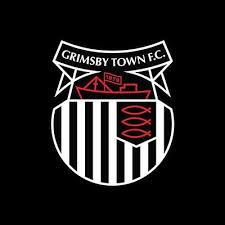Grimsby Town: A Hub of Football and Community Engagement

Introduction
Grimsby Town Football Club, founded in 1878, is not just a cornerstone of English football but a symbol of resilience and community spirit in Grimsby, Lincolnshire. The club, affectionately known as ‘The Mariners’, plays in the English Football League and boasts a rich history that has seen it navigate the highs and lows of the sport. As the club continues to play an essential role in local identity and community engagement, examining its recent developments offers insight into its significance both on and off the pitch.
Recent Performances and Challenges
This season, Grimsby Town has faced its share of challenges within League Two but remains committed to achieving positive results. The team, managed by Paul Hurst, has experienced fluctuating performances, which have sparked discussions among fans and analysts alike. Despite these struggles, the club’s loyal fanbase continues to rally behind their team, demonstrating the strong community bonds that define Grimsby Town.
In recent fixtures, Grimsby has been working hard to improve its standing in the league. Capturing a recent victory against another local rival showcased not just skill but the community’s unwavering support, providing a much-needed morale boost. Fans have rallied at Blundell Park, their home ground, reflecting that football often serves as a unifying force in times of uncertainty.
Community Initiatives
Grimsby Town’s commitment extends beyond the football pitch. The club is heavily involved in various local initiatives aimed at promoting youth engagement and supporting community well-being. Through partnerships with local schools, Grimsby Town has developed programmes that focus on health, education, and sportsmanship, fostering a sense of pride and purpose among young people.
Additionally, the club has been involved in charity work, notably supporting food banks and vulnerable individuals within the community, particularly in response to the economic impacts stemming from the ongoing challenges faced by the UK’s regions. Such endeavours underline the club’s role as not just a sports institution but as a key player in community cohesion.
Conclusion
As Grimsby Town navigates the complexities of modern football and community engagement, its significance remains profound. Beyond the realm of competition, the club represents resilience, pride, and hope for many in Lincolnshire. As the season progresses, fans remain optimistic about the team’s potential to improve its league position, while the community continues to benefit from the social initiatives led by the club. The future holds promise, not only for the players on the pitch but for the deep-rooted relationships that football fosters in the heart of Grimsby.









